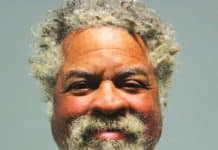As temperatures drop and heating homes becomes necessary, Sedona Fire District Senior Fire Inspector Gary Johnson said people need to be cautious.
Larson Newspapers
________________
As temperatures drop and heating homes becomes necessary, Sedona Fire District Senior Fire Inspector Gary Johnson said people need to be cautious.
“Heating fires are the second leading cause of fire,” Johnson said. “And this time of year, it is even more prevalent.”
Heating fires are second only to cooking fires — the No. 1 cause.
Since this season’s cold snap, SFD crews have already responded to three heating-related calls in the Sedona area.
All three of the incidents occurred Nov. 24.
At 1:33 p.m., crews responded to a report of the smell of smoke in a home. When firefighters arrived, they found the fan in the furnace was malfunctioning.
Crews were then called to another Sedona home at 3:09 p.m. in which a woman reported a gas leak.
According to Johnson, the woman’s chimney flue was closed and she had discovered the problem with a carbon monoxide detector.
Firefighters turned the gas off. When they left, the gas company had arrived on scene to take care of the problem.
That evening, SFD responded to a commercial chimney fire at L’Auberge de Sedona in Uptown at 8:27 p.m.
Johnson said significant embers produced by the chimney were blowing onto the wood shake roof.
When crews arrived, there was an active fire in the chimney.
According to the U.S. Fire Administration, 36 percent of residential fires in rural areas are heating related.
Johnson suggests people check smoke detectors, install carbon monoxide detectors, clean fireplaces, check thermostats and make sure heat sources are properly operating before they are needed.
Wood stoves and fireplaces should be checked for cracks, and legs, hinges and door seals should be inspected, according to the administration.
Heavy screens are recommended for in front of fire places to prevent logs from rolling out of the fire, as well.
While operating, only seasoned wood should be used. Do not burn green wood, artificial logs or trash.
If using an electric heater, the administration and SFD suggest residents make sure the heater has an Underwriter’s Laboratory safety listing.
This listing means the product has been tested to ensure it functions properly.
“We always encourage UL- listed,” Johnson said.
SFD does not recommend using kerosene heaters.
“I do not encourage people to use those at all,” Johnson said.
It is legal to use kerosene in Sedona, but because kerosene heaters produce carbon monoxide, they must be properly ventilated.
“You have to make up air,” Johnson said.
If a problem is detected prior to use, have it fixed by the appropriate party.
For more information contact SFD at 282-6800 or visit www.usfa.dhs.gov.
